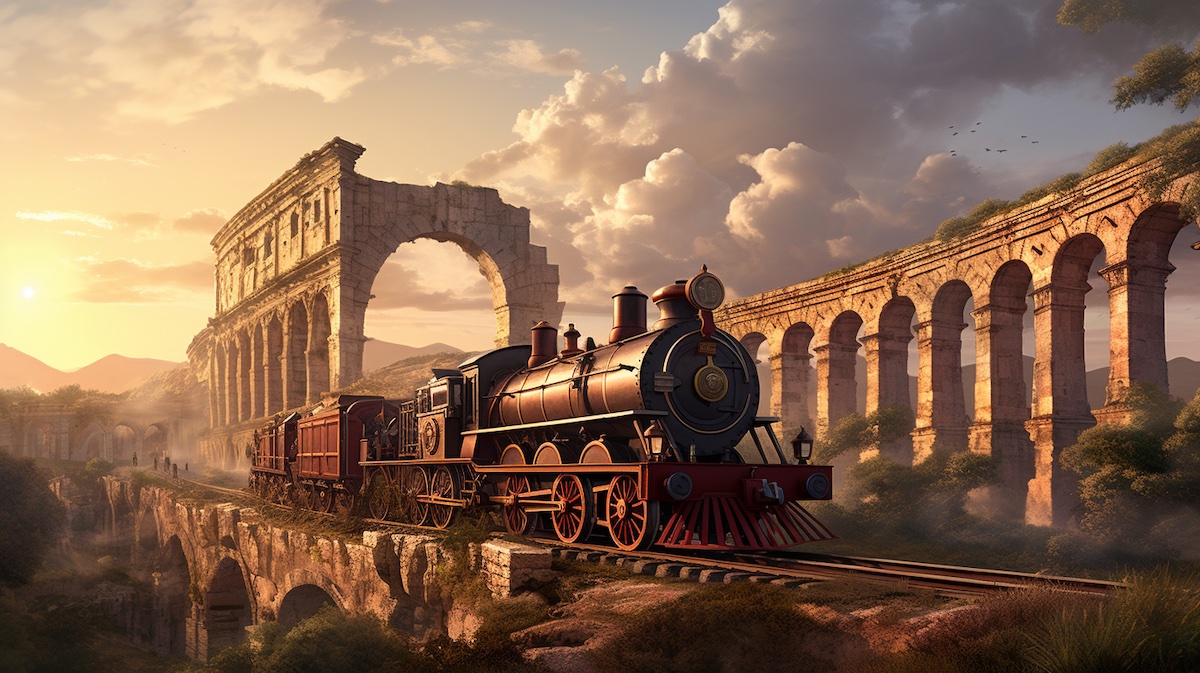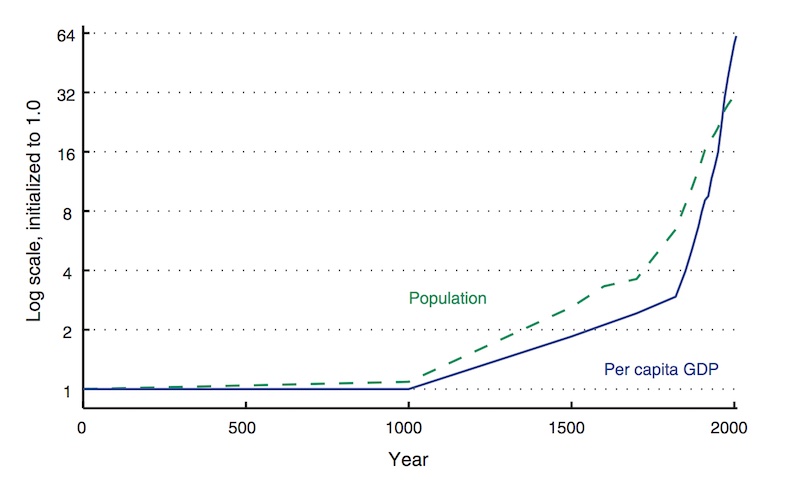Why no Roman Industrial Revolution?
by Jason Crawford · July 26, 2023 · 4 min read
Why didn’t the Roman Empire have an industrial revolution?
Bret Devereaux has an essay addressing that question, which multiple people have pointed me to at various times. In brief, Devereaux says that Britain industrialized through a very specific path, involving coal mines, steam engines, and textile production. The Roman Empire didn’t have those specific preconditions, and it’s not clear to him that any other path could have created an Industrial Revolution. So Rome didn’t have an IR because they didn’t have coal mines that they needed to pump water out of, they didn’t have a textile industry that was ready to make use of steam power, etc. (Although he says he can’t rule out alternative paths to industrialization, he doesn’t seem to give any weight to that possibility.)
I find this explanation intelligent, informed, and interesting—yet unsatisfying, in the same way and for the same reasons as I find Robert Allen’s explanation unsatisfying: I don’t believe that industrialization was so contingent on such very specific factors. When you consider the breadth of problems being solved and advances being made in so many different areas, the progress of that era looks less like a lucky break, and more like a general problem-solving ability getting applied to the challenge of human existence. (I tried to get Devereaux’s thoughts on this, but I guess he was too busy to give much of an answer.)

As a thought experiment: Suppose that British geology had been different, and it hadn’t had much coal. Would we still be living in a pre-industrial world, 300 years later? What about in 1000 years? This seems implausible to me.
Or, suppose there is an intelligent alien civilization that has been around for much longer than humans. Would you expect that they have definitely industrialized in some form? Or would it depend on the particular geology of their planet? Are fossil fuels the Great Filter? Again, implausible. I expect that given enough time, any sufficiently intelligent species would reach a high level of technology on the vast majority of habitable planets.
Devereaux asserts that there is a “deeply contingent nature of historical events … that data (like the charts of global GDP over centuries) can sometimes fail to capture.” I see this in reverse: the chart of global GDP over centuries is, to my mind, evidence that progress is not so contingent on random historical flukes, that there is a deeper underlying process driving it.

So why didn’t the Roman Empire have an industrial revolution?
Consider a related question: why didn’t the Roman Empire have an information revolution? Why didn’t they invent the computer? Presumably the answer is obvious: they were missing too many preconditions, such as electricity, not to mention math (if you think ENIAC’s decimal-based arithmetic was inefficient, imagine a computer trying to use Roman numerals). Even conceiving the computer, let alone inventing one, requires reaching a certain level of technological development first, and the Romans were nowhere near that.
I think the answer is roughly the same for why no Roman IR, it’s just a bit less obvious. Here are a few of the things the ancient Romans didn’t have:
- The spinning wheel
- The windmill
- The horse collar
- Cast iron
- Latex rubber
- The movable-type printing press
- The mechanical clock
- The compass
- Arabic numerals
And a few other key inventions, such as the moldboard plow and the crank-and-connecting-rod, showed up only in the 3rd century or later, well past the peak of the Empire.
How are you going to industrialize when you don’t have cast iron to build machines out of, or basic mechanical linkages to use in them? How could a society increase labor productivity through automation when it hasn’t even approached the frontier of what is possible with simple wooden tools? Why even focus on improving labor productivity in manufacturing when productivity is still very low in agriculture, which is more fundamental? Why should it exploit coal when it has barely begun to exploit wind, water, and animal power? How are engineers to do experiments and calculations without any concept of the experimental method, and without anything close to the mathematical tools that are available today to any fifth-grader? And if anything was discovered or invented, how could the news spread widely when most information was hand-written on parchment?
All of the flywheels of progress—surplus wealth, materials and manufacturing ability, scientific knowledge and methods, large markets, communication networks, financial institutions, corporate and IP law—were turning very slowly. There is not a single, narrow path to industrialization, but you have to get there through some path, and ancient Rome was simply nowhere close. You can’t leapfrog over the spinning wheel to get to the spinning mule, and (this is one thing we learn from Allen’s analysis) it’s not clear that it even makes economic sense to do so.
In a sense, I’m saying the same thing as Devereaux: Rome couldn’t have had an IR because they didn’t have the preconditions. But rather than conceiving of those preconditions as very narrow and seeing the IR as highly contingent, I am taking a much broader view of the preconditions.
If Rome hadn’t collapsed, they might, within a matter of centuries, have advanced to the stage of industrialization. But they would have done it by skipping the Dark Ages and following an incremental course of technological and economic advancement that, if not identical to ours, would probably be not unrecognizable, and perhaps quite familiar.
Comment: Progress Forum, LessWrong, Reddit
